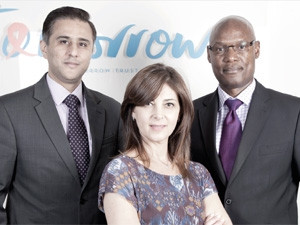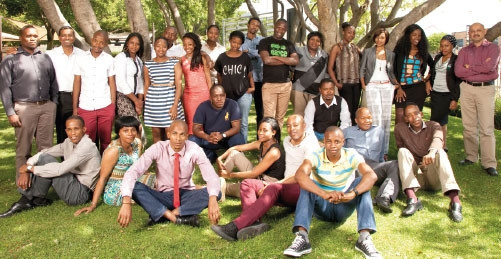
The concept of dual-shoring may not be new, but an Indian company and its two BEE partners have taken it to new levels by targeting computer science graduates from previously disadvantaged communities. Earlier this year, Zensar Technologies, which is rated among the top 12 Indian IT companies, became the first company from India to enter into a BEE deal with investment holding firm Kapela and The Tomorrow Trust, a move it says could see Zensar increasing its empowerment rating from level four to between three and two.
But this is only its latest step towards empowerment. Zensar began looking at upskilling South Africans almost immediately after setting up local operations in 2001, says Harish Lala, country manager at Zensar.
"As we grew, instead of wanting to be yet another foreign multinational, we began transforming Zensar into a local company, with a focus on skills," he adds. "Local skills are scarce, but people with the right qualifications are not. The challenge is in transitioning them to the corporate world, and there's a clear need for companies to invest, train, guide, groom and enable graduates to become absorbed into the South African mainstream economy.
"Many local companies don't invest in training, the way corporates do in India - everybody here is relying on government."
The Zensar Graduate and Training Programme started in 2009, selecting computer science graduates from previously disadvantaged communities, and sending them to India.
Work culture
"At our campus, our South African graduates are aligned with our Indian graduate programme, working side by side with their Indian counterparts, many of whom are engineers or hold a Master's degree in computer science," says Lala. "It's a hardcore programme running from three to six months. Indian companies have reached SEI CMM Level 5 working across the globe, and after successfully completing their internship, we see our graduates instilled with that high level of international training and intense work culture. They also have the ability to focus on rapid innovation and fast time to market."
Dual-shoring provides the global expertise local companies need.
Makhup Nyana, Kapela
When graduates return from India, Zensar places them in internships with local companies such as Investec and Sanlam, where - as Lala says - they take up positions that 'some guys from India would have taken instead'.
High potential
Ganesh Natarajan, Zensar vice-chairman and CEO, says the BEE deal with Kapela will help Zensar move into the public sector. It has previously focused on the private sector in areas such as banking, insurance, manufacturing and mining.
"We see this country as a potential centre for research, education and software development, and plan to invest significantly in developing global delivery capabilities here," he says.
"This will be an important hub of development activities for all our new markets in the coming years."
Following the success of this project, the next step to transformation was addressing an equity level partnership. Zensar identified Kapela and The Tomorrow Trust as its BEE partners.
"Zensar's focus on developing locals in a stringent programme in India contributes to transformation and fits in with Kapela's strategy of uplifting the previously disadvantaged in terms of the Black Empowerment Act," says Kapela director Makhup Nyana.
"Dual-shoring provides the global expertise local companies need. They now have a local operator that is resourceful both in South Africa and abroad. And it can also offshore into other parts of Africa."
Being an Indian company, Zensar's focus on giving back to the community is integral to who it is - corporate social responsibility (CSI) is not just something it does, it's something it is, adds Kim Normand-Feinberg, CEO and founder of The Tomorrow Trust, a non-profit organisation that supports orphaned and vulnerable children from Grade R to Grade 12, and on to college and university. A measure of its success is the 100% Grade 12 pass rate in 2012, with an 87% university pass rate.
Many local companies don't invest in training, the way corporates do in India - everybody here is relying on government.
Harish Lala, Zensar
"As Zensar's CSI partner, their budget comes through to The Tomorrow Trust, and they support our computer science students with training."
Teach a man to fish

"The Tomorrow Trust makes good sense by taking children all the way from childhood to graduate level, which is where our programme of leanership starts," adds Lala.
According to Normand-Feinberg, The Tomorrow Trust ensures its children can choose a career and a future they want, instead of relying on charity. She says: "You can give food parcels for so long, and no longer. In South Africa, we have a problem with work ethic and delivery, so working with an Indian company and being exposed to the Indian work ethic is huge. And for Zensar to train up our youth will only have a positive impact on the South African business community."
First published in the Dec/Jan 2014 issue of ITWeb Brainstorm magazine.
* Article first published on brainstorm.itweb.co.za
Share